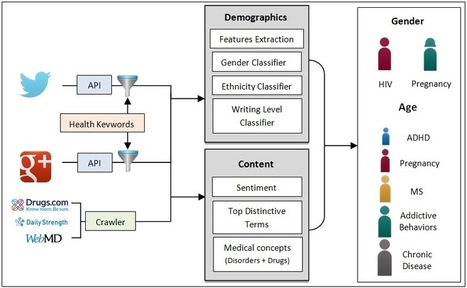As Web-based social media are growing in popularity, the number of people who share their experiences or ask for support in health-related social media has also increased. A study found that 41% of e-patients have read someone else’s commentary or experience about health on a Web-based news group, website, or blog.
Another study reported that more than 60 million Americans read or contribute to Health 2.0 apps, in which they consider these apps as their first source when gathering data and opinions. About 40% of Americans doubt a professional opinion when it conflicted with what they form from Web-based health social media.
One of the key benefits of health-related Web-based social media reported by researchers is the increased access to information to various demographic groups, regardless of age, education, income, or location. However, previous work has mainly relied on user surveys to study the effect of the use of social media to health-related factors such as psychological distress. In addition, previous work does not reveal granular information on what disorders or other health topics are mostly discussed in the Internet by each demographic group, which would allow health care providers to create targeted and effective educational campaigns.
In this work, we conducted the first, to our best knowledge, large-scale data-driven comparative analysis of the content of health-related social media across various demographic dimensions—gender, age, ethnicity, location, and writing level. For each demographic group, we study the content of the posts across the following dimensions: sentiment, popular terms (keywords), and medical concepts (particularly disorders and drugs). Concepts refer to entries in the Unified Medical Language System (UMLS) vocabulary, whereas terms are just words from the posts’ text that may or may not belong to any UMLS concept.
We report results for 3 types of social media:
(1) general Web-Based Social Networks, namely Google+ and Twitter,
(2) drug review websites, and
(3) health Web forums.
The selection of social media types was based on their popularity and on our study of the literature on health-related social content.
The objective of this study was to identify which health topics are discussed in which social media by which demographic groups, to better guide educational outreach and research activities.
read the whole study at http://www.jmir.org/2016/6/e148/



 Your new post is loading...
Your new post is loading...








